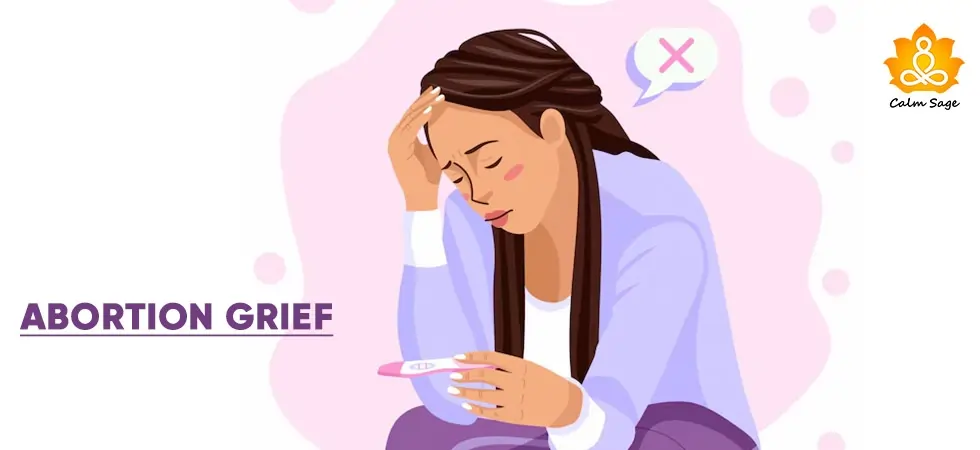Is Depression And Overeating Related? This Is How To Break The Cycle

Whenever I feel stressed, it’s common for me to turn to my comfort foods to ease my distress but did you know that there is a link between stress, depression, and overeating? Without much thought, you might also turn to food to ease your sadness and low mood but is it the right choice?
In recent revelations, it has come to light that there is a strong connection between depression and overeating. Especially when it comes to binge eating on our comfort foods.
Binge eating is one of the most common coping mechanisms that many people turn to when they feel down, depressed, anxious, or even remotely stressed. However, overeating can be dangerous to your health, and wellness is left unaddressed.
If you can relate to overeating when depressed, then you may benefit from professional intervention, healthy coping techniques, or even medications. More recently, binge eating has become something psychological. When you feel sad or even angry, to take your mind off of things, it’s become common to turn to food as it is considered, widely, as a pleasure.
People try to find comfort when in distress and lately, it’s been found in food. However, indulging in one or two guilty snacks is OK, but when this eating turns into overeating, then it can be a sign of something more than just stress.
Eating Is A Coping Mechanism…Or Is It?
We’ve already established that when we’re stressed, comfort eating can be a relief but when you continue eating after you’re full or no longer can hungry, then it became more than just a coping mechanism.
In a study, it was found that feeling stressed and overeating can be a risk factor for depression. I guess that’s why it’s so common to find a lack of appetite or more than normal appetite when you’re struggling with depressive symptoms. Even people with eating disorders can be found struggling with depression, anxiety disorders, or other mental health issues.
Apart from this, when you fail to address binge eating or overeating, it can eventually lead to weight gain that can be harmful to your overall physical health.
When you overeat, especially when you’re struggling with depression, it can be a great challenge to figure out if your overeating is a coping mechanism because you’re sad or because you feel mentally worse as you can’t stop eating.
Fortunately, you can work through this and break this cycle of overeating. Did you know that people who’re prone to anxiety and depression are more likely to struggle with eating disorders too? It could be so because the same chemicals and hormones are responsible for both of these mental health disorders.
In another study, it was shown that stress and poor diet management are linked with a higher risk for depression and anxiety. High-fat diet effects can extend to the effects of chronic stress. Chronic stress, if left untreated for long periods, can turn into clinical depression. This might explain the link between depression and overeating.
Symptoms of overeating in Depression?
One of the symptoms of depression is overeating can be compulsive eating or eating more than your body needs. Emotional eating can be a symptom of depression eating among other symptoms such as:
- Having trouble stopping eating
- Quickly eating large portions of food, repeatedly
- Eating even when you’re full
- Never feeling satisfied with what you’ve eaten
- Feeling emotionally distanced or apathetic while eating
- Feeling guilty or even more depressed after overeating
Is There A Way To Deal With Depression And Overeating?
Even if they occur together, depression and overeating can be treated. The first line of treatment, recommended by experts, is psychotherapy. With a therapist’s help, you can understand the cause of your overeating and depression, then create a plan to tackle both – either together or individually.
One of the best courses of action is cognitive behavioral therapy (CBT). CBT can work well in treating depression and eating disorders such as overeating. This evidence-based treatment can help you come face to face with your triggers that cause depression and overeating. With a CBT therapist, you can then work on finding the right coping skills and long-term disorder management.
Your therapist may also work on other weight management behaviors such as:
- Dietary constraints
- Purging behaviors
- Body avoidance
- Overeating habits, and more such unhealthy behaviors.
The therapy can also help focus on areas such as:
- Negative body image issues
- Over-evaluation of weight
- Poor self-worth issues
- Perfectionism, and more
With the therapy, you can learn better coping mechanisms and reduce your overeating tendencies when stressed or depressed. If the case is severe, then the therapist may recommend medications that can help with depression and overeating at once.
What Else to Do to stop Depression Overeating
Few lifestyle changes can also help ease depressive and overeating symptoms. Such self-help strategies can include:
1. Stress management:
Stress can be a big factor in triggering depression and overeating. So with some effective stress management techniques, you can manage your stress before it creates more problems.
2. Regular exercise:
Exercising regularly can help improve body image issues, reduce cortisol (the stress hormone), and uplift your mood, hence reducing depressive symptoms.
3. Avoiding temptations:
If you know that you’re prone to binge eating after a stressful day, then you can work on avoiding temptations by making them less easily accessible and focusing more on healthy coping tips than overeating.
In Conclusion…
Whether you’re stress eating or not, overeating can be unhealthy in many ways – psychologically and physically. It’s important to listen to your body and pay attention to the signs of over-eating and poor mental health. Eating disorders and mental health disorders should not be taken lightly.
If you’re facing trouble managing depression and overeating, then you can always reach out to a professional for help. With the right medications and lifestyle changes, you can always work through your issues and live a healthier life.
I hope this article helped you understand the link between depression and overeating. For more, you can write to us at info@calmsage.com or drop us a message on our social media.
You can also share your thoughts with us in the comments below.




















